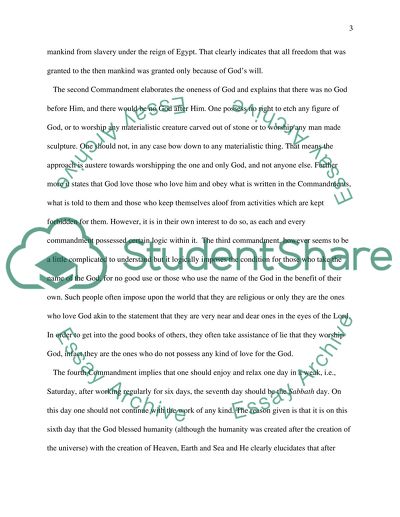Cite this document
(“The Moses and the Ten Commandments by The Torah Book Report/Review”, n.d.)
The Moses and the Ten Commandments by The Torah Book Report/Review. Retrieved from https://studentshare.org/religion-and-theology/1516054-the-moses-and-the-ten-commandments-by-the-torah
The Moses and the Ten Commandments by The Torah Book Report/Review. Retrieved from https://studentshare.org/religion-and-theology/1516054-the-moses-and-the-ten-commandments-by-the-torah
(The Moses and the Ten Commandments by The Torah Book Report/Review)
The Moses and the Ten Commandments by The Torah Book Report/Review. https://studentshare.org/religion-and-theology/1516054-the-moses-and-the-ten-commandments-by-the-torah.
The Moses and the Ten Commandments by The Torah Book Report/Review. https://studentshare.org/religion-and-theology/1516054-the-moses-and-the-ten-commandments-by-the-torah.
“The Moses and the Ten Commandments by The Torah Book Report/Review”, n.d. https://studentshare.org/religion-and-theology/1516054-the-moses-and-the-ten-commandments-by-the-torah.


